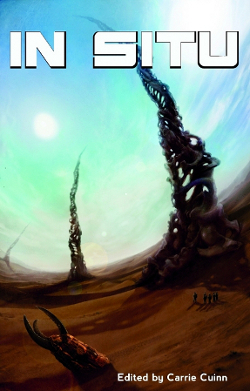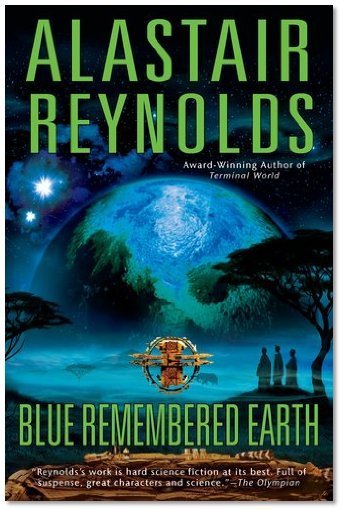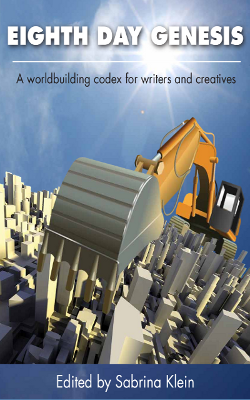Graham Storrs's Blog, page 13
August 28, 2012
Why I’m Sick of Writers’ Forums On the Web

Some time today, I’m going to go through all the writers’ groups I belong to online and cancel my memberships of all but a couple. It’s something that I’m very sad about since I love chatting with other writers about books, genres, ideas, and the craft of writing, but I’ve had enough. The problem is, in every group to which I belong, while there is a handful of serious, intelligent people who can talk sensibly about these things, that happy few is vastly outnumbered by a great mass of stupid, ignorant idiots who can’t even construct a sentence let alone put anything worth reading into it.
Arrogant? Opinionated? Moi?
Well, yes, I suppose so, but if I join a “hard science fiction” group (say) I don’t expect it to be full of people speculating about the role their particular god played in manipulating human evolution (or, in a couple of cases, denying that evolution even happens!) When I cite Einstein or list some experimental findings to support an idea, I don’t want to be told I have a ‘closed mind’ because, well, I’m not sure why, except that the position of most people in these groups seems to be that, if you can imagine it, it must be possible, so scientific evidence can all be taken with a pinch of salt!
The thing is, they’re writers, of course, not scientists (for the most part) or philosophers, and that seems to give them freedom to talk all kinds of twaddle about life without the need for any kind of evidence or investigation. Their belief seems to be adequate justification for any bizarre position whatsoever. And I don’t just mean belief in gods or other supernatural beings of forces – just belief. They don’t believe in global warming – so it’s not happening. They believe that alien bacteria are alive on Earth – so that must be true. They don’t believe that the speed of light is the fastest you can go – so there’s no need to worry about that, then. They believe that psychic powers are real – so they can ignore forty years of exhaustive studies on the matter that say they’re not. And on, and on. It’s driving me mad. Mad, I tells ya.
I’m beginning to think that, when I’m Dictator of the World (surely it must happen soon, since anything is possible, right?), I will make everyone who wants to write take a sanity test. If they fail – because they believe their beliefs are more valid than actual evidence and are therefore clearly certifiable – they will only be allowed to write in crayon in locked, padded rooms. Meanwhile, the best I can do is stay out of the places where these people congregate – science fiction writers’ forums – and lament that my efforts to network with like-minded people have been stymied by the astonishing scarcity of such people.
August 5, 2012
Am I a Writer Yet?

Someone tweeted that old chestnut by Richard Bach today, “A professional writer is an amateur who didn’t quit.” It’s an irritating quotation, like so many, because, while it sounds like a tautology, it is only half true (or some much smaller fraction, in fact). Not quitting is a necessary but not sufficient condition for becoming a professional writer, yet the implication (or at least the inference that people take away) is that all you have to do to be a professional writer is to keep at it. Which, of course, is balderdash.
A true statement, both necessary and sufficient, is that a professional writer is one who is paid for his or her writing. Piling up manuscripts in your bottom draw doesn’t cut it, however long you persist in doing it. But this begs the question, how much do you have to be paid before it counts? Is there a lower limit?
The question bothers me because it’s tax return time here in the Jolly Old Land of Oz and, for the first time ever, I have made enough money from writing fiction to earn above the lower income tax threshold. If this goes on I may have to start attending sci-fi conventions so I have expenses to write off against my earnings. I feel very good about this, as you can imagine. Stubbly with goodness, as Philip Larkin might have remarked. So good that I actually had the nerve to put down my occupation on a form last week as “Writer”.
Sadly, of course, it isn’t true that my occupation is “writer” (even though I went through the rigmarole of applying for an Australian Business Number a short while ago on the advice of a civil servant who was assessing my wife’s eligibility for something and seemed to think it would make everything easier). If it were, I would be living on my earnings rather than using them to help pay a small part of the dog’s vet bills. I don’t think you could say your occupation was “dentist” if you were only paid a few thousand dollars a year and had to rely on other sources of income to buy the groceries and pay the mortgage. You could say you were altruistically filling teeth on a more-or-less charity basis, I suppose.
But I do write, so I’m a writer in that minimal sense. And I do get paid for it (may the gods bless you all), although not enough to (honestly) say it’s my occupation. But am I a professional writer?
It seems to me you can be a professional anything as long as what you do is paid for. But there’s a certain expectation that goes with the word that implies that the thing you’re a professional at is also your occupation, and that, in turn, implies you make enough to live on. And that, here, would be – what? – the social security benefit rate? the minimum wage? the old age pension rate? the average family income? Incredibly, the pittance I made last year by selling books was above some of these benefit levels, so the Government, if no-one else, must think people can live on such a miserable stipend. So they might consider me a professional writer. And that’s probably why they want me to pay tax – because they all live in 1962, when you could buy fish and chips for the family for a shilling.
So, overall, it seems that I’m edging closer to the mark but I’m not quite across it yet. What will this new financial year bring? Who can say? Certainly being a professional writer is not going to be anything like being a professional dentist. The dentist just has to extract one tooth from someone else’s head each hour, eight hours a day, five days a week, 48 weeks a year, and he or she can almost guarantee an income above the maximum tax threshold, a des res in a nice suburb, a car for everyone in the family who wants one, and (if it’s a he) a Harley Davidson to go out posing at the weekends with his mates (yes, they do that). The writer may extract a couple of thousand words a day from his own head with the same dogged dedication, yet there is no guarantee that any of them will be worth a damned thing to anybody.

See? A dentist … on a Harley.
July 25, 2012
Free!

It’s about the half-way point on my second TimeSplash giveaway under the Kindle Select scheme and the result seems to be about the same as last time – thousands and thousands of books snatched up, mostly in the US. At the time of writing, a day and a half into the event, about 13,000 books have been given away. Last time, in January this year, I gave away nearly 20,000 in total over five days. So this time could be even bigger.
Of course, TimeSplash has rushed to the top of the free books charts. It went straight to number 1 in Technothrillers and quickly achieved number 1 in science fiction (on both Amazon.com and on Amazon.co.uk). And it has stayed there (give or take a position swap or two in the US technothriller chart) while it has slowly climbed the overall Kindle books chart (it is currently #19 in Kindle Fiction on Amazon.com). It’s a great feeling to see my book flying off the shelves like this and I’m very, very grateful to all the people who have grabbed a copy. I know that even making a book free doesn’t mean people will want it.
“And what’s the point of it all?” you ask. Well, last time this happened, once the free book giveaway was over, TimeSplash started selling. In the weeks that followed, it peaked at 400 sales a day and it stayed in the Amazon.com top 100 for ten weeks. It’s not likely to happen like that again because Amazon has changed its ranking algorithm to favour more expensive books – and I sell TimeSplash at a fairly low price. But I’d be very happy with half the success I had last time. A third, even.
And this is likely to be my last giveaway of TimeSplash for a very long time, so if you’d like a copy, you should grab one today. Or better still, wait a couple of days and buy one. Think of how virtuous you’ll feel, knowing you could have had it for free but hung on so you could put bread on a starving author’s table.
July 21, 2012
An Ontological Breakthrough

I can’t help it, I agonise over the meanings of things. I’m a discriminator; a differentiator. I like to categorise.
Take “science fiction” (oh stop groaning, you went to the trouble of clicking the link, you might as well listen to what I have to say). It’s a term that arose in the mists of time and has evolved into a marketing category and, by now, is nearly meaningless. Yet I still feel that, for me, it means something. For me, it is what I do, what I love, what I aspire to.
I’ve tried to say what I think sci-fi is. I’ve tried to say what I think I’m doing when I write it. I’ve got into horrible frustrating arguments with horrible frustrating people on blogs and forums. Now, I finally believe I have distilled the essence of what science fiction is for me – if not for anybody else. Here is my definition.
Science fiction is a genre in which reason and the assumption that the real world is the only one that exists, as manifested primarily through science and technology, and only this, can explain the universe, is considered true, and in which the story typically but not necessarily, features science and/or technology.
Hey, at least it’s short. It may not cover every book ever written that people consider to be sci-fi, but at least it covers all the books I’ve ever written, and that’s what is really important. It also covers all the books which I believe to be science fiction and excludes all the ones I don’t. This is a big breakthrough for me.
It also solves a problem I’ve been having in the past few days as I ponder the possibility of writing a sequel to TimeSplash. The problem with TimeSplash is that it violated some of my previous definitions of science fiction because the method of time travel, while having loads of great consequences I could play with, bears no relation to any real physics. I just made it up. However, under my new definition, made up physics is perfectly acceptable, as long as the overall commitment to reason is upheld.
Think of it this way. A science fiction writer can make up whatever he or she likes as long as the foundation is assumed to be based on reality and the physical universe. You can’t make up supernatural forces (like The Force, or Fate, or Destiny, or whatever) or supernatural actors (gods, vampires, zombies, angels, demons, and all the rest) but you can make up anti-gravity, faster-than-light travel, transhumans, and aliens – because they are assumed to be explicable by science.
Here’s another way to think of it. Arthur C. Clarke famously said, “Any sufficiently advanced technology is indistinguishable from magic.” In my science fictional universe, this is not true because the assumption is always that anything, however magical it may seem, has a rational explanation – because that’s just the way the real world is. Magic has no place in my science fiction. It’s the way I am. It’s the way I want my sci-fi to be.
The fact that I also like science fiction to conform as closely as possible to what modern science has discovered about the universe – or, at least, not to contradict it without good reason – is simply, therefore, a matter of taste. Fifty years ago, even “hard” sci-fi writers happily included “mental powers” such as telepathy in their stories. And why not, fifty years ago, the existence of psi powers was an open question. Since then, decades of painstaking research have shown none of these powers actually exist. Putting them into a sci-fi story today would seem as ridiculous as using phlogiston to explain combustion. Yet people still do it, still seeming to believe that there is a scientific basis for psi. I don’t like it. I cringe at the ignorance this displays. Yet, as long as the assumption is there that science could, in principle, explain it, I will grudgingly allow such nonsense into the fold of science fiction. If they do it with the view that psi is a supernatural phenomenon, not accessible to a scientific explanation even in principle, then, I’m sorry, but the doors of sci-fi are closed. They should peddle their wares in the market of fantasy or religious fiction.
So. What do you think?
July 17, 2012
Christmas in July – Have a Good One

 And, to help you make the most of your turkey and mince pies, why not curl up with a good book?
And, to help you make the most of your turkey and mince pies, why not curl up with a good book?
Deck the Halls, “a merry measure of cross-genre short fiction subverting traditional notions of the holiday season,” is a collection of 32 short stories (each around 1500 words) by mainly Australian writers (but with a sprinkling of talent from all over the place). It is being launched in Australia today and while the launch is on, 24 of the stories are available to read for free on the eMergent Publishing website. So hurry along there, they’ll be gone in 24 hours.
After that, the book will be available in ebook and print edition from the eMergent book shop.
My own short story “Gays and Commies” is in there (and currently available for free) and already one reviewer has described it as “Most excellent, chilling,” and “so bloody good.” (Am I happy, or what?) So, if you’re Australian, don’t waste time reading this, go read all those free stories (and then buy the book). If you live elsewhere, the book will be launched worldwide in November.
July 10, 2012
IN SITU Hits the Shelves

 I have a story in an anthology called In Situ and it’s going to be published tomorrow (12 noon New York time on 10th July – which is 2 am Brisbane time on 11th July) so stand by your Amazon “buy” button because this is a collection of stories you won’t want to miss. Here’s the blurb:
I have a story in an anthology called In Situ and it’s going to be published tomorrow (12 noon New York time on 10th July – which is 2 am Brisbane time on 11th July) so stand by your Amazon “buy” button because this is a collection of stories you won’t want to miss. Here’s the blurb:
“From independent publisher Dagan Books, IN SITU is a new anthology of science fiction stories featuring alien archaeology, hidden mysteries, and things that are better off left buried. A quiet man finds more than he bargained for when he sets out with his metal detector on a lonely hill … A soldier meets a new kind of enemy fighting an altogether different kind of war … On a distant swamp planet, a woman questions what kind of human she’s becoming … a pregnant archaeologist finds a connection with a long-dead alien child … while deep space scavengers wonder what it ever meant to be human at all. These fifteen evocative science fiction stories will take you from dusty archaeologists digging up our alien past into a distant future where we’ve become the relics. Thought-provoking and entertaining, IN SITU explores science, theology, preservation, and the art of alien finance, in a whole new way. Edited by Carrie Cuinn. Contains stories by Ken Liu, KV Taylor, Paul A. Dixon, Bear Weiter, Mae Empson, Jason Andrew, Greg Burch, Sarah Hendrix, R.S. Hunter, Rebecca Lloyd, Alex Shvartsman, Kelly C. Stiles, Graham Storrs, David J. West, and Dawn Vogel.”
It’s a great theme for an anthology, don’t you think? And the publishers have made sure the price is very reasonable (just $9.99 for the paperback, $3.99 in ebook formats). However, if you fancy your chances of winning a copy for free, there is a giveaway on Goodreads for the rest of this month. I hope you enjoy it.
June 12, 2012
Review: Blue Remembered Earth by Alastair Reynolds

 (This review first appeared in The New York Journal of Books.)
(This review first appeared in The New York Journal of Books.)
In a future not so far away, the Mechanism keeps the peace, augmented reality is commonplace across the solar system, and people are fitted with mandatory neural “enhancements” to make us better citizens.
Africa, one of the dominant continents of the 22nd century, is home to the rich, powerful, and dysfunctional Akinya family, owners of Akinya Space, the mega asteroid mining company founded by matriarch and recluse, Eunice Akinya. When Eunice dies at 140 her adult grandchildren—Geoffrey and Summer—are launched on a quest to the ocean’s depths, the Moon, Mars, and way beyond, following clues their grandmother left for them more than 60 years earlier.
Blue Remembered Earth by Alastair Reynolds is part family saga, part space opera, and part DaVinci Code thriller. It is the first part of a “new epic” (as the blurb puts it) from this prolific and very well respected writer.
Alastair Reynolds made his name with the Revelation Space novels. These were praised for the sharp writing, the rigor of the science, and the expansive ideas. Blue Remembered Earth has all of this and the series promises even more.
But Alastair Reynolds’ work—like so much science fiction—is often also criticized for its poor characterization and unfortunately, this new novel has this same flaw, especially in the erratic development of Geoffrey Akinya’s character from morose, obsessive, spoiled brat to reasonable, responsible adult.
It is a long book. Sometimes it can feel like a very long book. There are probably whole characters and associated plotlines that could have been chopped to make this a leaner, faster story. It really only seems to gather pace in the very last part of the book. For lovers of family sagas, this may not be a problem at all. For lovers of science fiction action, it could be.
If the long chase from clue to clue across the solar system was intended to create a sense of excitement and tension, it failed dismally. If it was there to provide a guided tour of the inner planets, their moons, and the asteroids, it was an outstanding success.
Alastair Reynolds began life as an astronomer, and it shows. His descriptions of the Moon, Mars, Mars’s moon Phobos, and the techniques, technologies, and tribulations of traveling and living in space are first class. There is plenty of exposition, but it is all well done, and as Kim Stanley Robinson says, exposition belongs in science fiction, and readers expect it.
If you like your science fiction realistic—“hard” in the jargon of the genre—you will appreciate the detail and the careful and informed imagining of these distant and exotic places. And you will enjoy the awe and wonder with which the author infuses every journey beyond the atmosphere of home.
Blue Remembered Earth is well worth reading for the scenes on Phobos and Mars alone, but it does a solid job of building a future Earth both credible and fascinating. It is an optimistic view of that future—in itself something quite unusual in modern sci-fi.
The ravages of climate change and global war are behind us when the book starts, and a new kind of society has arisen based on constant surveillance by the ubiquitous Machine and on people made less aggressive and more reasonable by their mandatory cognitive enhancements.
Despite how sinister this might sound, it is all presented as benign, the only feasible way to enable peace and prosperity. And while some characters kick against it, living in the Descrutinized Zone on the Moon, most accept it and welcome it. It makes Earth a bland place in many ways, but emphasises the relative lawlessness and freedom of the rest of the Solar System.
Yet if Blue Remembered Earth’s ideas and its descriptions of other worlds are its strengths, the clue-chasing plot is its greatest weakness: anticlimactic, pre- telegraphed, and largely irrelevant.
This is a shame, because there is a fabulous short novel inside Blue Remembered Earth, packed with vivid description and great ideas—but you’ll have to wade through 500 pages to extract it.
June 5, 2012
A Few Quick Reads (One for Free!)

I’ve had a few short works appearing in anthologies and mags lately and I thought you might be interested if I did a quick summary – especially since one is free and they’re all easily accessible.
The Earth Ship - This is a longish short story that I put out a couple of weeks ago as a Kindle book for $0.99c (GBP 0.77p). It’s had some good reviews and it’s been selling well – especially through amazon.co.uk where it has been in the top 40 sci-fi short stories since its release and spent most of that time in the top 20. It’s about a rather unusual forgotten colony world and how it reacts to being re-absorbed by the Empire.
Signs of Life - This short sci-fi story is about faith and doubt and exploring the Galaxy looking for life. It appeared a couple of days ago in Residential Aliens Magazine which you can read for free online.
Two Fools in Love – This very short story (about 1500 words) appears in the collection Nothing but Flowers: Tales of Post-Apocalyptic Love ed. Jodi Cleghorn. An ebook edition has just come out for $4.99 but there is also a paperback edition if you prefer your trees dead. It deals with the ironies of discovering love after the world has ended.
Forming a Government – This essay on the role of governments in world building in science fiction and fantasy was published electronically last week in Eighth Day Genesis: A Worldbuilding Codex for Writers and Creatives ed Sabrina Klein. It costs $4.99 as an ebook but, for those who like their books to have a smell, there will be a paperback edition in due course.
As ever, if you do read any of these, I hope you enjoy them at least as much as I enjoyed writing them. Have fun and let me know how it went.
May 31, 2012
A Worldbuilding Codex for Writers and Creatives

 Worldbuilding is one of the essential skills of a science fiction or fantasy writer. I’d go so far as to say it separates the greats in these genres from the mediocre. It is also the arena in which the writer is required to exercise their imagination to its fullest, or else leave the reader disappointed and unfulfilled. Building an interesting, credible, wholly consistent world, bursting with possibilities for the characters who live there, is the mark of a true master of the spec. fic. craft. Think only of Middle Earth, Arrakis, Tatooine, or Narnia and you are transported to those wonderful places and the potential they hold.
Worldbuilding is one of the essential skills of a science fiction or fantasy writer. I’d go so far as to say it separates the greats in these genres from the mediocre. It is also the arena in which the writer is required to exercise their imagination to its fullest, or else leave the reader disappointed and unfulfilled. Building an interesting, credible, wholly consistent world, bursting with possibilities for the characters who live there, is the mark of a true master of the spec. fic. craft. Think only of Middle Earth, Arrakis, Tatooine, or Narnia and you are transported to those wonderful places and the potential they hold.
That is why I froze in fear when I was first invited by Steven Saus of Alliteration.Ink to contribute a chapter to a new non-fiction work all about worldbuilding and how to do it. There are few who are worthy. The book, Eighth Day Genesis: A Worldbuilding Codex for Writers and Creatives, edited by Sabrina Klein is out today in ebook formats (there’ll be a print edition available in a few weeks’ time) and, from my name right there on the contents list, you can see I got over my trepidation and made my contribution. I have to say, it was one of the hardest chapters I’ve ever written, not just because of the hubris of taking it on, but largely because of finding some way to fit what I wanted to say into one, small chapter.
Fortunately for me, there were many other invited contributors who were busily crafting the rest of the book at the same time. I just had to stick to one tiny aspect of the whole – building a government for an invented world. I will leave it to you guys to decide whether I did even this small fragment justice. I really hope I did, because I truly believe that worldbuilding is the cornerstone of great science fiction and fantasy. I’ve been reading other contributions to the collection all day and I am very impressed. Sabrina and Steven have put together an excellent writer’s resource and one I’ll be happy to have on my bookshelf.
May 18, 2012
Why is Science Fiction Dying?


Ah, the good old days.
Science fiction appears to have two big problems in the marketplace. One is that fantasy is outselling it by about 3:1. The other is that at least half (possibly more, depending on your classification criteria) of what is being sold as sci-fi is actually fantasy with some sci-fi elements – meaning the sci-fi market is actually much smaller than the stats suggest. Of course, I’m only talking about books here. In the world of films and video games, science fiction is doing very well indeed.
To many of us who love the genre, it looks horribly like sci-fi is withering on the vine and it is very hard to see why that might be. For a start, the sci-fi books that are published seem to be pretty good. All the sci-fi writers whose names start with B (Benford, Bova, Brin, Baxter, etc., etc.) are still writing excellent novels, as are several authors with different initials (the end of the alphabet is well represented with Robinson, Reynolds, Simmons, Scalzi, and co.). However, nothing much seems to have happened in the genre since cyberpunk, except that the ideas of the singularity and transhumanity are still being worked through at the leading edge. Much of the current output of the genre involves a major space opera revival and the ever-popular military SF. None of which is a bad thing. I’m just saying, we’re not really seeing a fall-off in quality but we are seeing a lack of new ideas coming through and a major rehashing (sorry, development) of old tropes.
Thinking about this – as I often do, because I write sci-fi and I worry that my market is disappearing – it occurred to me to wonder if the fortunes of science fiction and of science itself are not linked. In fact, it may be possible to make a case that they are in lockstep. Of course science itself is still doing extremely well, there are more scientist at work in the world than there ever have been and it continues to attract gigaheaps of money. What is strikingly different between now and, say, the Fifties – the Golden Age of science and sci-fi – is that science is treated with suspicion and hostility now while back then it was treated with respect and reverence. Looking back at science in the first half of the 20th Century it’s astonishing just how much respect it did get. You might say the whole world was in the grip of scientism - and I mean that in the nicest possible way.
The thing is, to many, science looked like it might just be a viable alternative to religion. It might provide The Answer. And, in the spirit of that age, science fiction might be seen as a collection of parables for the new religion, a vision of Heaven recast as the World of the Future, an exegesis of the works of Einstein and Schroedinger and Freud. The three laws of robotics were moral laws, the Overlords of Clarke’s Childhood’s End were just a bible page thickness short of being benign deities, and Fahrenheit 451, The Martian Chronicles, and Do Androids Dream…? were morality plays.
These days scientism is a minority religion, science is seen as a golden calf to be cast down, and the scientists we once placed on pedestals are fallen idols. We’re disappointed and disillusioned. We didn’t get answers. We didn’t get squat except Windows 7, genetically modified corn, and electronic trading. Our gods failed us and so we turn our back on them and reach out to new saviours for the New Age.
That’s why I think science fiction is in decline. It no longer serves the purpose it once did – to provide the everyday acolyte’s access to the mysteries of scientism. Readers find it hard now to see the message, writers don’t believe with the fervour they once did. We’ve moved beyond the Age of Enlightenment into a more spiritual and superstitious age. And the vague spirituality that now pervades the zeitgeist is revealed to us in new Texts – stories of heroes and magic, sensitive vampires, angels who have lost their way, other realms, better in so many ways than this one.
That’s why Fantasy is so popular, that’s why science fiction is confused and diminished. That’s why I, a devout believer in the True Path that only science can reveal, worry about my market share.



